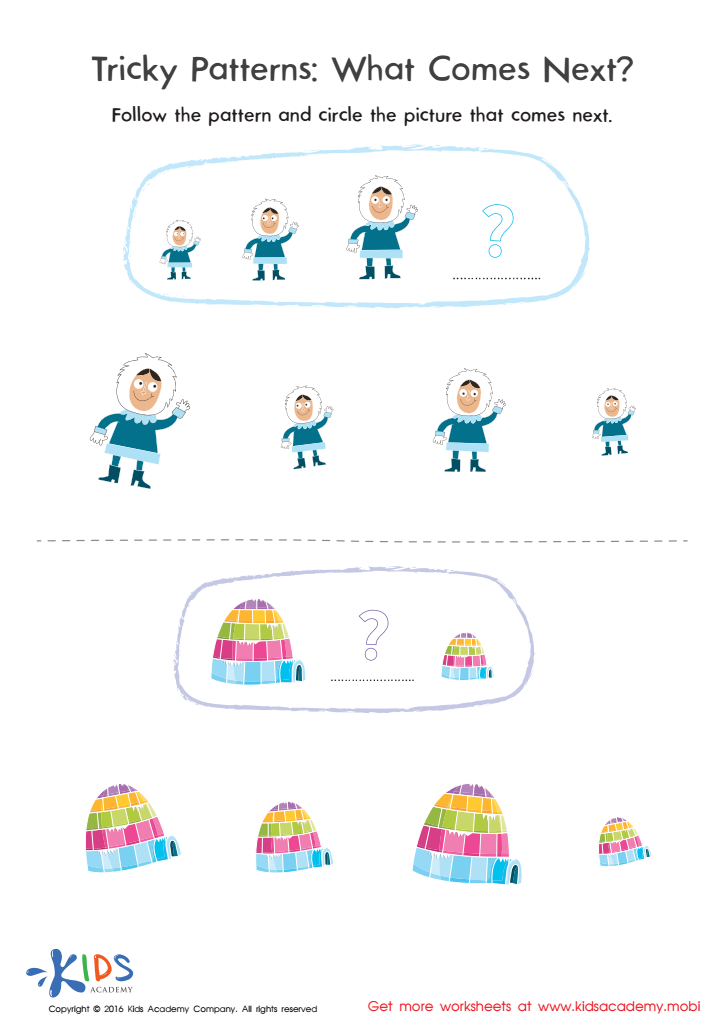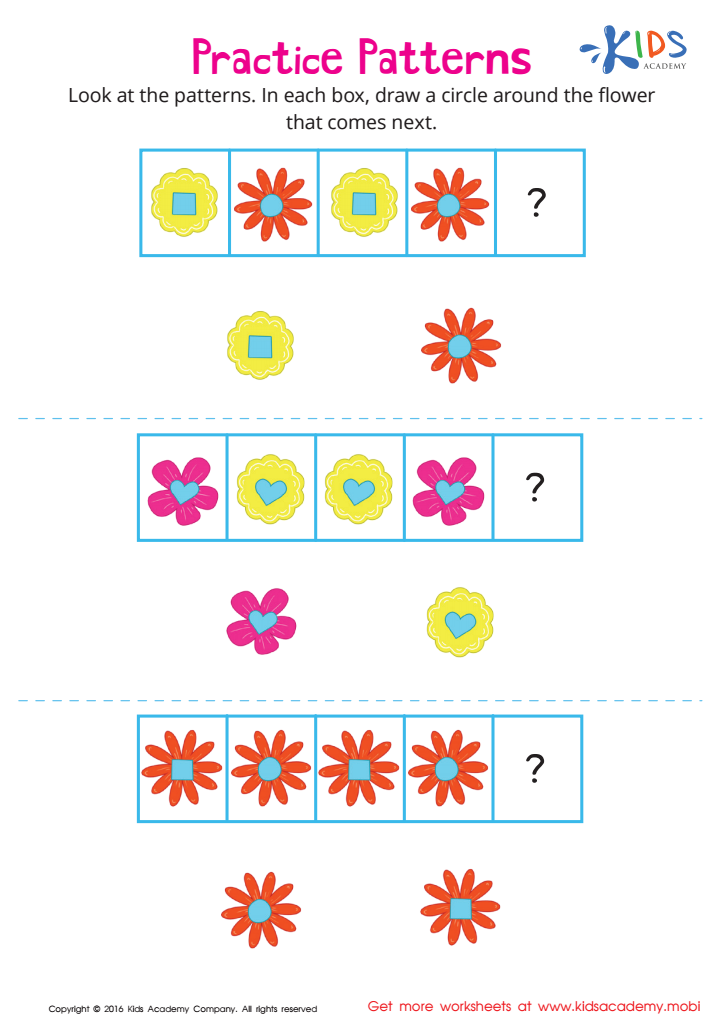Pattern recognition Matching Worksheets for Ages 7-9
3 filtered results
-
From - To
Unlock the world of critical thinking and spatial awareness with our Pattern Recognition Matching Worksheets, designed for ages 7-9! Tailored to boost kids' math skills, these fun and engaging worksheets enhance their ability to spot sequences and predict future elements in patterns. With a wide variety of exercises, children will develop essential problem-solving skills while enjoying interactive learning. Perfect for both classroom and at-home practice, our worksheets target core learning objectives in an easy-to-use format. Start your child's journey toward mathematical mastery with Kids Academy's expertly crafted pattern recognition resources today!


Tricky Patterns Size Worksheet


Logic Game Sorting Worksheet
Pattern recognition and matching skills are crucial for children aged 7-9 as they play a fundamental role in cognitive development and academic success. At this early age, children's brains are at a prime stage for developing these crucial skills, which can significantly enhance their problem-solving abilities and logical thinking.
Parents and teachers should give importance to pattern recognition because it lays the foundation for mathematical understanding. Recognizing patterns helps children make connections between numerical concepts, improving their ability with arithmetic and basic geometry. For example, when children see a sequence of shapes repeating, they begin to predict what comes next, a critical skill in understanding mathematical sequences and operations.
Furthermore, pattern matching aids in language acquisition and literacy. Identifying letter patterns enhances spelling and reading skills by helping children recognize word formations and predict text. It also improves their ability to decode unfamiliar words, boosting reading fluency and comprehension.
In addition, pattern recognition is key to developing executive function skills like reasoning, attention, and memory. Children who excel in these areas are better prepared for complex problem-solving tasks and adaptive learning strategies.
Overall, fostering these skills can create a strong academic foundation, bolster cognitive development, and boost confidence in young learners. Beneficial activities include puzzles, games, and classroom exercises that encourage identifying and creating patterns.
 Assign to My Students
Assign to My Students




















